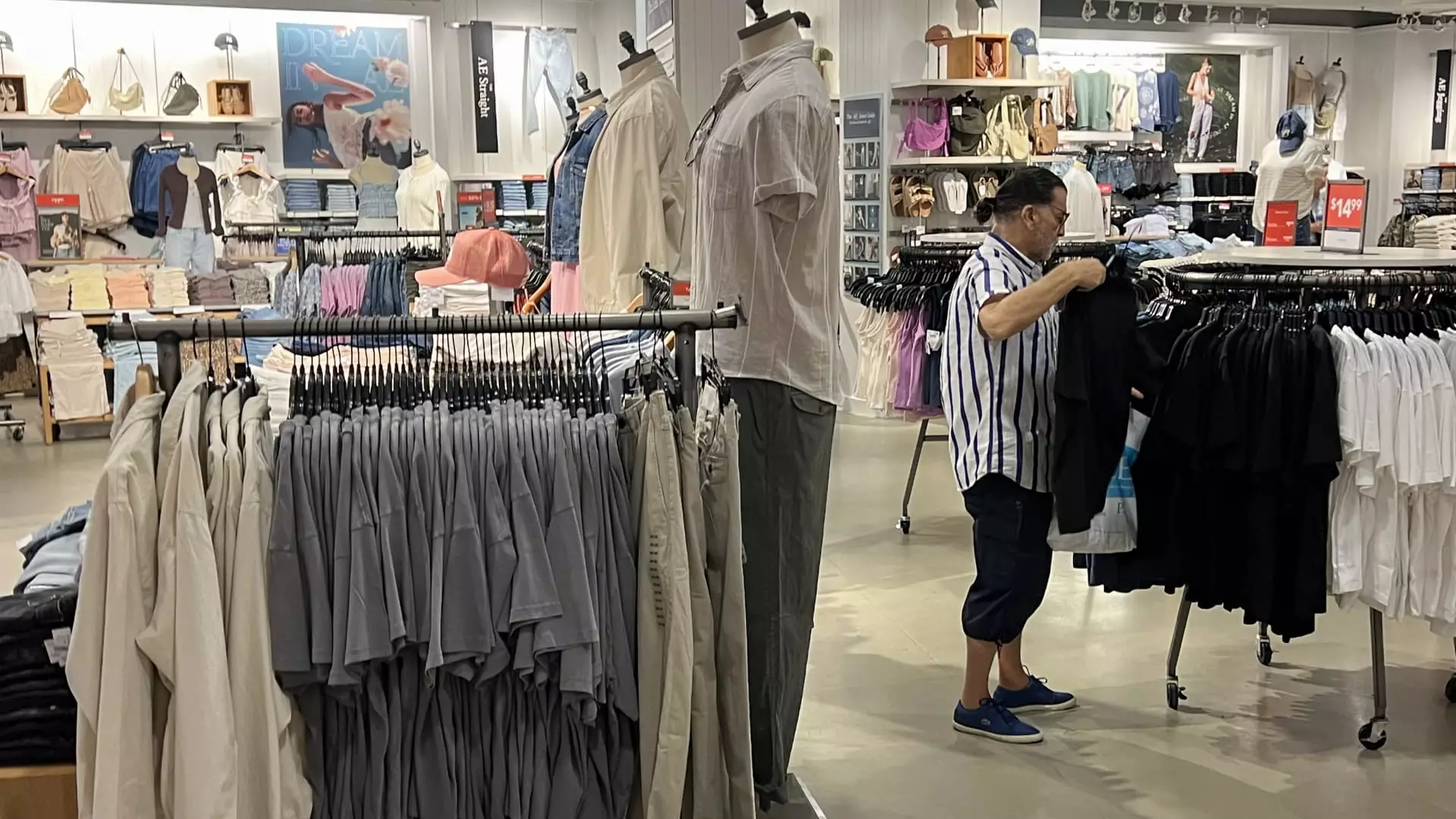In recent months, a seismic shift has occurred in consumer behavior, as the bite of economic uncertainty and a looming recession casts a dark shadow over the American populace. Panic buying has given way to a more somber resolve, with many consumers willing to leverage their financial resilience. This new attitude is notably underscored by a surprising endorsement from President Donald Trump, who brazenly suggested that Americans could thrive on “less.” A rather audacious claim, considering that for many, the abundance of goods represents not just luxury, but survival.
The hard-hitting reality is that 83% of consumers are now mentally prepared to adjust their spending habits for the worse. This is not just a passing phase; it’s an indication of how deeply entrenched economic anxieties have set in. The survey from Intuit Credit Karma reveals a considerable portion of adults—54%—are literally planning to cut out travel, dining, and entertainment altogether, an unnerving reflection of our times. What used to be staples of leisure and joy are now seen as extravagances that can be easily chopped from one’s budget.
The Economic Tightrope: Consumer Confidence on Edge
Economic analysts are grappling with a crucial paradox. While consumer spending has historically been the foundation of the U.S. economy, the present climate reeks of trepidation. Ted Rossman, senior analyst at Bankrate, captures this duality perfectly: “Moving forward, people may not be able to absorb these higher prices.” Here lies the crux of the issue. Increasing tariffs and inflation have inflicted stress on consumers like a noose tightening, making discretionary spending seem like a perilous gamble. If this cautiousness persists, it alters the very landscape of economic growth.
Jack Kleinhenz, the chief economist of the National Retail Federation, tries to put a brave face on the circumstance by noting that consumer sentiment remains “steady.” However, one cannot ignore the fact that this “steadiness” is becoming increasingly brittle. The data show a glaring disconnect between the perceived resilience of the economy and the honest feelings of consumers swarming with anxiety.
Panic Underneath the Surface: A Deteriorating Sentiment
The consumer sentiment metrics provided by organizations like The Conference Board and the University of Michigan reveal a sobering narrative: we are staring into an abyss of pessimism. The expectations index has stumbled to a twelve-year low, echoing feelings of doom that reverberate through households nationwide. The weight of rising living costs and mounting debt is suffocating. Roughly 47% of Americans regularly contemplate their financial futures with a range of dread and anxiety. This is not merely a statistical anomaly. It is a waking nightmare for many who have suddenly found themselves grappling with their financial constraints.
Notably, the Trump administration’s renewed collection initiatives on defaulted federal student loans only worsen this precariousness for millions. It’s akin to throwing gasoline on an already raging fire of economic distress. Americans who once had the illusion of financial security are realizing that they will have significantly less to live on in the near future.
The Illusion of Resilience: The False Narrative
Despite claims of economic resilience, it’s vital to dissect the narrative carefully. The idea that American consumers will always adapt and “make it work” is perilously flawed. The conditioning of society to adhere to unyielding consumer culture may soon be unraveling. The data clearly points to alarming trends—over 44% of Americans reflect on their financial preparedness daily. This obsession with finances is simmering as a manifestation of anxiety, something that can no longer be dismissed as mere paranoia.
In a political context, these sentiments culminate in intensified calls for compassion and systemic change. The center-wing liberal perspective implores a reevaluation of policies that fail to prioritize the well-being of everyday consumers. It underscores that our economic systems must evolve to foster security rather than incite fear.
As we hurtle toward an uncertain future, the implications of current consumer sentiment remain profound. Ignoring these signs or brushing them off as temporary is not just naive but dangerously shortsighted. The call for ethical economic practices is more vital than ever before, as the scars of a cautious society deepen further.


Leave a Reply